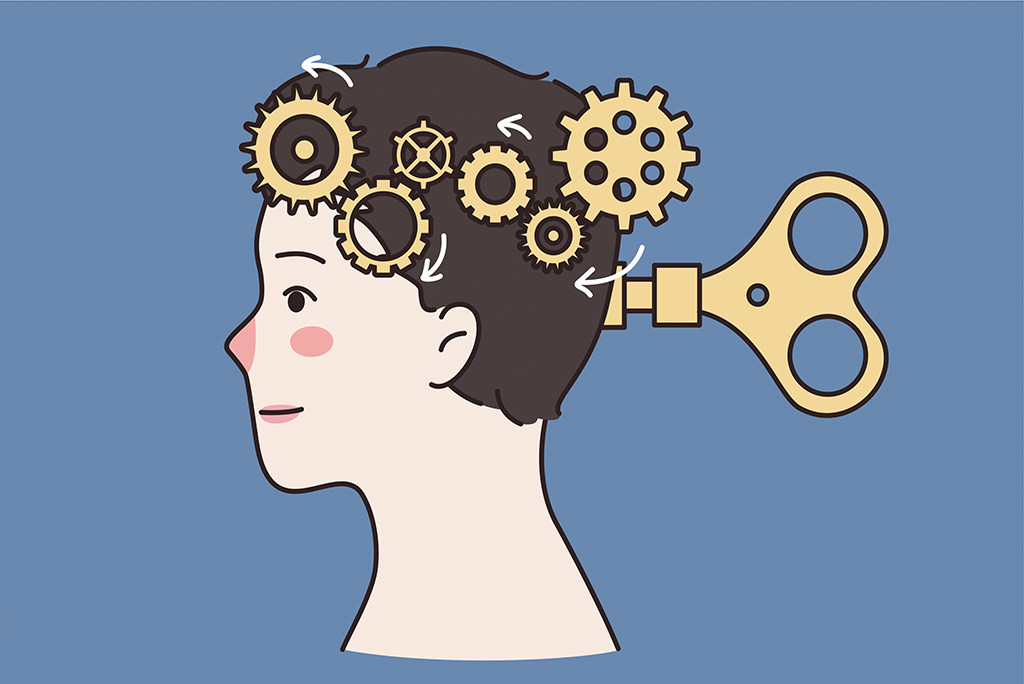
Technology has always presented numerous opportunities for improving and transforming healthcare. Such improvements include reducing human errors, improving clinical outcomes, facilitating care coordination, improving practice efficiencies, and tracking data over time. Machine learning (ML) has already proven effective at disease identification and prediction, recognizing patterns that are too subtle for the human eye to detect, guiding physicians towards better-targeted therapies and improved outcomes for patients. Researchers have also used ML as a tool to recognize signs of depression and suicidality by assessing patients’ voices, picking up changes in speech too subtle for a doctor to notice. Artificial intelligence (AI) and machine learning can expand our approach to mental health.
Mapping Mental Health
Researchers at Massachusetts General Hospital have developed an artificial intelligence model that generates ‘personalized maps’ to guide individuals toward improved mental well-being. In this study, the researchers developed a model based on deep learning, a type of machine learning that uses layered algorithmic architectures to analyze data. The researchers also identified the most depression-prone psychological configurations on the self-organizing maps, which they used to develop an algorithm to help individuals move away from potentially dangerous mental states.
Shortest Path to Human Happiness
Deep Longevity, in collaboration with Harvard Medical School, offers another deep learning approach to mental health. Researchers have created two digital models of psychology that work together to find a path to happiness.
The first model depicts the trajectories of the human mind as it ages. The second model is a self-organizing map that serves as the foundation for a recommendation engine for mental health applications. This learning algorithm splits all respondents into clusters depending on their likelihood of developing depression and determines the shortest path to mental stability for any individual.
Combining Technology & Therapy is Key
Anyone with a smartphone can access conversational agent phone apps, also known as chatbots, which are meant to help users cope with the anxieties of daily life. These language processing systems can imitate human discussion by simulating conversations with a therapist via text. They can be a gateway to therapy or can reinforce lessons from in-person sessions. Research has shown that some people prefer interaction with chatbots rather than with real humans.
With the help of AI and machine learning, researchers are hoping the brain can help identify mental health issues. By applying specially designed algorithms to brain scans, labs could identify distinctive features that determine a patient’s optimal treatment. Machine learning could also assist in suicide-prevention. Currently, doctors only have a slight advantage over random probability in recognizing this risk. But algorithms, using data that are easily accessible to health care providers, can predict attempts with significantly improved accuracy.
Stay Current with Technology Advances
From healthcare to security, machine learning plays a critical role in developing the technology that will determine our future. Covering machine learning models, algorithms, and platforms, Machine Learning: Predictive Analysis for Business Decisions, is a five-course program from IEEE.
Connect with an IEEE Content Specialist today to learn more about this program and how to get access to it for your organization.
Interested in the program for yourself? Visit the IEEE Learning Network.
Resources
Deep Longevity LTD. (2 July 2022). Harvard Developed AI Identifies the Shortest Path to Human Happiness. SciTechDaily.
Gavrilova, Yulia. (4 July 2022). AI Chatbots & Mental Healthcare. IOT for All.
Glick, Molly. (1 July 2022). Your Next Therapist Could Be a Chatbot App. Discover.
Kennedy, Shania. (28 June 2022). AI-Generated ‘Maps’ May Help Improve Mental Well-being. Health IT Analytics.
Kesari, Ganes. (24 May 2021). AI Can Now Detect Depression from Just Your Voice. Forbes.
Rutherford, Lucie. (18 February 2022). Medicine Meets Big Data: Clinicians Look to AI For Disease Prediction and Prevention. UVAToday.
Savage, Neil. (25 March 2020). How AI is improving cancer diagnostics. Nature.


No comments yet.